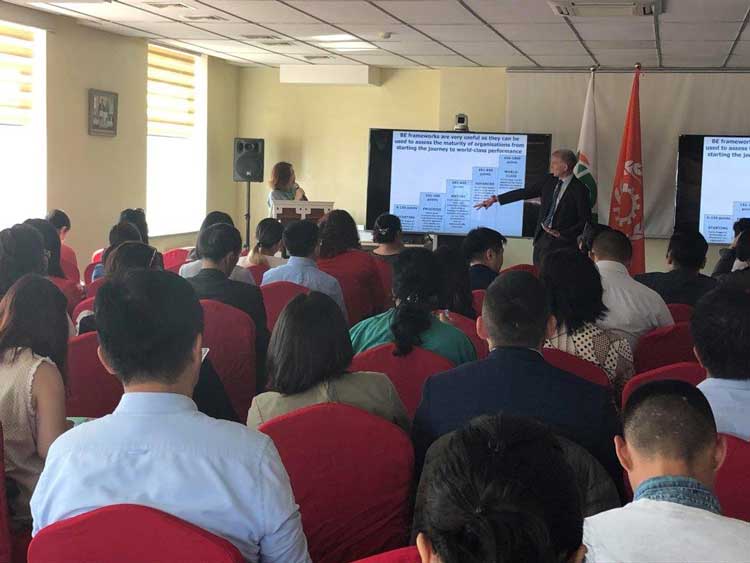
Select Page
 One of the key roles of the APO is to serve as an institution builder. This role is undertaken under various programs, including the Institutional Capability Development of National Productivity Organizations (NPOs) Program. The level of development of NPOs remains diverse, with more advanced ones conducting an array of productivity-related activities, while others have not been able to expand programs and services due to their organizational structures, mandates, objectives, and funding arrangements.
One of the key roles of the APO is to serve as an institution builder. This role is undertaken under various programs, including the Institutional Capability Development of National Productivity Organizations (NPOs) Program. The level of development of NPOs remains diverse, with more advanced ones conducting an array of productivity-related activities, while others have not been able to expand programs and services due to their organizational structures, mandates, objectives, and funding arrangements.
Recognizing that recent social, political, and economic changes along with emerging global developments pose serious challenges to member countries, the APO is focusing on building up the capabilities of NPOs so that they can offer effective productivity promotion, training, and consultancy services for the public and private sectors in their countries to achieve sustainable economic development. Consultancy services for NPOs involve reviewing their strategies and approaches to governance, leadership, human resources, services and programs, etc., which may include benchmarking against more advanced NPOs to illustrate how progress can be achieved. The results are then analyzed to make recommendations for future actions to address the institutional needs identified and enable effective productivity-related strategies and programs to be developed and implemented at the national level.
The Mongolian Productivity Organization (MPO) was selected as the first NPO to benefit from this institutional capability development initiative, which will result in the proposal of a specifically tailored MPO Institutional Capability Development Plan. Phase one of the project was conducted from 11 to 16 August in Ulaanbaatar, consisting of preliminary fieldwork/survey, consultations and interviews with MPO officers and staff, and a subsequent stakeholders’ meeting. That meeting was attended by representatives of the Ministry of Food, Agriculture and Light Industry; Ministry of Education, Culture, Science and Sports; and Mongolian University of Life Science; as well as eight productivity specialists who represented different state-owned and private-sector client organizations of the MPO.
After a comprehensive review of the MPO’s resources and programs; core competencies; emerging roles and challenges resulting from social, political, and economic changes; institutional support needs; and stakeholders’ inputs, International Resource Person Dr. Robin Mann of New Zealand will consolidate the initial preparatory documents and draft the proposed MPO Institutional Capability Development Plan. That plan will detail the methodology used; findings and recommendations; necessary actions by the MPO, relevant government units, and other productivity actors; and organizational capacity-building efforts in the next phase.
A consultative meeting on the initial proposed MPO Institutional Capability Development Plan is to be held 2–4 October to present and discuss the findings and recommendations, including soliciting additional feedback, before revising and submitting the final version to the APO and MPO.